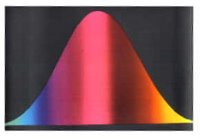The prior knowledge an individual brings to a new task influences their performance on the task. It is commonly assumed (an assumption validated via research) that is much easier to learn and remember something if we have an existing knowledge framework in which to embed the new knowledge (
Engle, 1994).
Crystallized intelligence (Gc) is one of the primary human domains of
acquired knowledge. Both laypeople and experts agree that
Gc is an important part of overall intellectual ability.
Gc represented by such behaviors as “displays a good vocabulary,” “reads with high comprehension,” “is verbally fluent,”and “converses easily on a variety of subjects,” was found by Sternberg, et al. (1981) to be the first of three major factors defining intelligence for both experts in the field of intelligence and laypeople
(Campito, 1994).
According to the
APA Dictionary of Psychology, crystallized abilities are those abilities
"such as vocabulary and cultural knowledge, that are a function of learning and experience in a given culture. Crystallized abilities are believed to depend on physiological condition somehwat less than do fluid abilities; thus they may be better sustained in old age. They are also believed by some to derive from fluid abilities." (p. 248)Crystallized Intelligence (
Gc) is the breadth and depth of a person's acquired knowledge of a culture and the effective application of this knowledge. According to
Horn (1994), "
Gc can be thought of as the intelligence of the culture that is incorporated by individuals through a process of acculturation" (Horn, 1994, p.443). This store of primarily verbal or language-based knowledge represents those abilities that have been developed largely through the “
investment” of other abilities during educational and general life experiences (Horn Noll, 1997).
Schematically,
Gc might be represented by the interconnected nodes of a fishing net. Each node of the net represents an acquired piece of information, and the filaments between nodes (with many possible filaments leading to and from multiple nodes) represent links between different bits of stored information. A person high in
Gc abilities would have a rich “fishing net” of information as represented by many meaningfully organized and interconnected nodes.
Gc is one of the abilities mentioned most often by lay persons when they are asked to describe an “intelligent” person (Horn, 1988). The image of a sage captures to a large extent the essence of
Gc.
According to
Gilhooly (1994), when discussing the knowledge domains (in this case,
Gc), certain distinctions generally recur: (a)
knowing that versus
knowing how, (b)
declarative versus
procedural knowledge, (c)
explicit versus
implicit (tacit) knowledge, and (d)
semantic versus
episodic knowledge/memory. The first three distinctions are virtually synonymous. “Knowing that” (i.e.,declarative, explicit knowledge) is consciously known and can typically be expressed in a commonly understood code (e.g., spoken or written language) or in some form of specialized code (e.g., notation in music or dance movement.). “Knowing how" (i.e., procedural, or implicit, knowledge) is not accessible consciously. Although procedural knowledge can be demonstrated in behavior, it is not explicitly communicable.
Gc includes both declarative (static) and procedural (dynamic) knowledge. The final
Gc knowledge distinction (
semantic vs. episodic knowledge) differentiates between knowledge of general concepts, principles, and word meanings (semantic knowledge) versus autobiographical knowledge of specific experiences (episodic knowledge) (Gilhooly, 1994).
Declarative knowledge is held in
long-term memory and is activated when related information is in
working memory.
Declarative knowledge includes factual information, comprehension, concepts, rules, and relationships, especially when the information is verbal in nature. For example, during pre-clinical training, a medical student acquires declarative knowledge about diagnosing clinical problems—the student learns factual information, concepts, rules, and relationships.
Procedural knowledge refers to the process of reasoning with previously learned procedures in order to transform knowledge. For example, during the second phase of medical training, when medical students study a patient's case, current information in short-term working memory triggers the student to retrieve declarative knowledge and apply it to the patient. Applied declarative knowledge is procedural knowledge.
An individual with poor
Gc lacks information or language skills or has an inability to communicate (especially verbally) his or her knowledge. Such a weakness can produce cumulative learning problems as it becomes increasingly difficult to learn from what one is reading or hearing if the words, vocabulary, and concepts in the material are not in a reader’s existing fishing net of knowledge. That is, it is hard to relate and connect a new “node” of information to a net of knowledge where no similar nodes exist. We would all most likely fail a course in quantum physics as few of us have a net of knowledge that includes the “prerequisite” nodes of information to make sense of the new material. The concept of academic course prerequisites reflects an awareness of the importance of prerequisite knowledge in a domain.
Given the limited capacity of working memory, formal human knowledge domains (
Gc, as well as other acquired knowledge domains such as
Grw, Gq, Gkn), seek
"cognitive economy in terms of rules or principles with the widest range and the maximum simplicity." Gilhooly (1994, p. 637). This preference for simplicity (to minimize cognitive effort) can result in over-simplifications at the cost of inaccuracies. Furthermore,because people can only actively focus attention on a limited amount of their vast store of acquired knowledge at any one time, knowledge (e.g.,
Gc) tends to be organized into
hierarchical structures. The hierarchical organization of knowledge helps insure that associations to related information are strongest (Gilhooly, 1994; p.637).
The breadth of
Gc is apparent from the
number of narrow abilities that it subsumes.
In the arena of intelligence research,
Gc has been likened to the
wallflower ability. See
comments by Earl Hunt for clarification.
Technorati Tags:
psychology,
educational psychology,
school psychology,
intelligence,
IQ,
IQ scores,
IQ tests,
CHC,
CHC theory,
Cattell-Horn-Carroll,
cognition,
cognitive,
Gc,
Gsm,
crystallized intelligence,
knowledge,
declarative knowledge,
procedural knowledge,
memorypowered by
performancing firefox All the news thats fit for IQs Corner readers:
All the news thats fit for IQs Corner readers:










